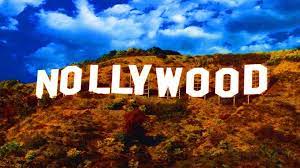Abuja (AFP): A Nigerian black-and-white art-house movie that won a Sundance award is quietly gaining an audience in a country better known for glitzy Nollywood blockbusters.
Written and directed by Nigerian CJ Obasi and now in cinemas nationwide, “Mami Wata” is a dream-like dive into a West African village “frozen in time”, on the Atlantic coast.
In the village of Iyi, the inhabitants worship sea goddess “Mami Wata”, through their priestess Mama Efe and her two daughters, who bring prosperity and health.
No need for schools, hospitals or police, “when we get Mami Wata” says the priestess.
But while the Mama Efe loses her healing powers, residents — torn between a desire for modernity and the preservation of traditions — begin to question their beliefs.
The sudden arrival on their beach of a mysterious stranger changes the fate of the village forever.
The film appears like a work of art: actors faces marked by white paint stains, hairstyles enhanced by ivory-coloured shells, the patterns printed on the loincloths and the moon reflected on the rough waves of the Atlantic — everything was built “in service to the black and white”, the director told AFP.
“This folkloric tale” is “an intoxicating, visual experience”, noted the jury of the prestigious Sundance independent film festival in the United States, which awarded it the prize for best cinematography in January 2023.
The movie also won three prizes at Fespaco in Ouagadougou, the largest African film festival.
More than a supernatural film, or a revenge thriller, “Mami Wata” tackles a complex subject, questioning “who is an African”? Obasi said.
– No blessing –
Does being African mean opposing everything progressive, does being progressive mean completely denying your traditions, or is there a balance?
“The main thing is balance, is to highlight neither the left or the right is perfect, black and white is not perfect, past and present is not perfect, the goal should be to find a balance,” he said.
The self-taught director in his 30s became known in 2014 when his first film “Ojuju”, produced with a very low budget, won the best film prize at AFRIFF, Nigeria’s main film festival.
Almost unprecedented for an art-house film in Nigeria, “Mami Wata” was distributed to around 30 cinemas across the most populous country in Africa.
And its distribution has started to reach screens in the United States and Europe.
However, defending such a film in the country of Nollywood — the very commercial Nigerian film industry which floods the African market with romantic comedies and melodramatic blockbusters — was a “serious fight”, Obasi said.
With “Mami Wata” the theme is far from the love sagas and family intrigues of the Nigerian elite presented for a decade on screens in all possible and unimaginable combinations.
“Nobody was giving us any blessing here,” the director said,
“A lot of people that showed interest, as soon as we said we are making it in black and white, they would just say ‘no’.”
As for the subject, Mami Wata, the West African voodoo goddess, she is the movie’s foil.
In Nigeria, a religiously conservative country of Christians and Muslims, local traditional religions are often frowned upon and sometimes practiced in secret.
That brought some resistance to the film.
“You know how religious Nigeria is, people thinking we were diving into the occult or demoniac whatever,” Obasi said.
He and his producer looked abroad to first develop their project, particularly in Burkina Faso, before finally succeeding in having it distributed in Nigerian cinemas despite mainstream pushback.
– ‘Serious fight’ –
On social networks and blogs, Nigerian moviegoers have acclaimed it as a “huge film”, “magic” and a “visual experience” even though they criticised its daytime only screening.
While mainstream media in Nigeria covered the Sundance prize extensively in January, almost no one wrote about the film once it was released in theatres.
Film critic Daniel Okechukwu, in a column for online media Okayafrica, said what should have been a triumphant return home turned into disappointment as the “Mami Wata” debut was marred by a lack of marketing.
“It’s a serious fight,” Obasi said.
“The audience they want to see other kinds of films, it feels that there is a structure or a power that says that ‘No Nigerian audiences don’t like these kind of films,'” he said.
But Obasi said he is content that his film and a new generation of directors in Nigeria are now getting to show a new way.
“I see a new kind of African cinema where there is more collaboration, to create new kinds of stories but also ways to tell our stories.”







